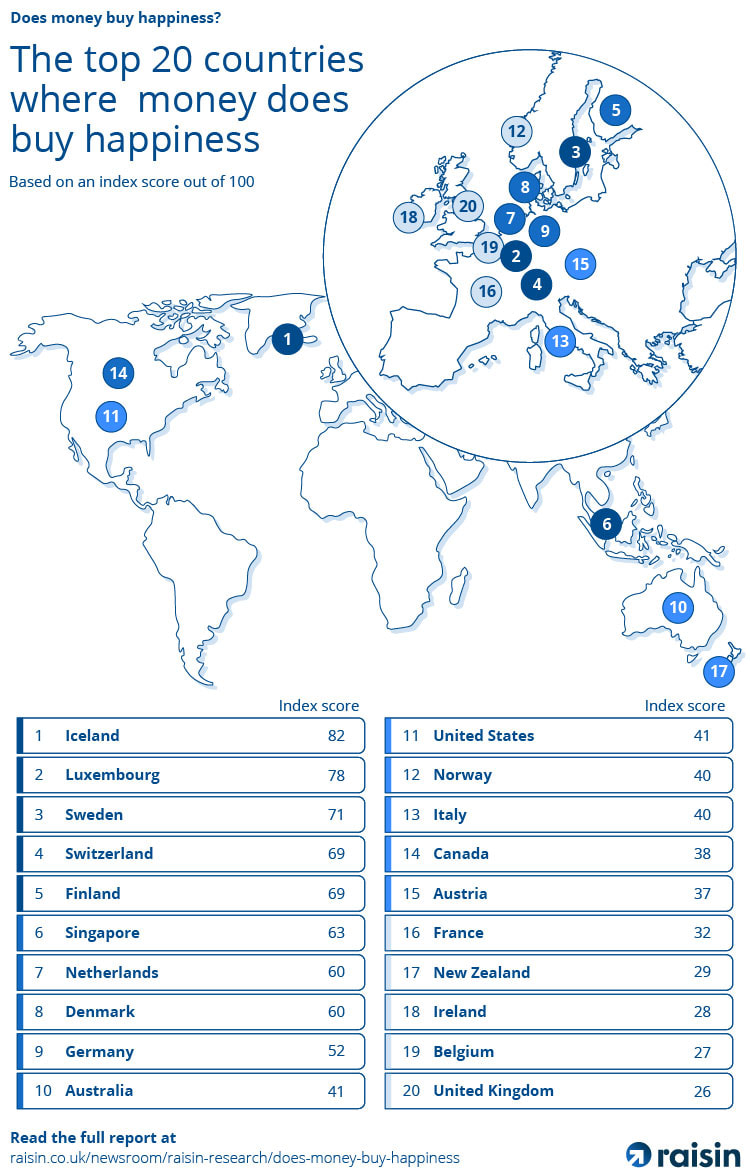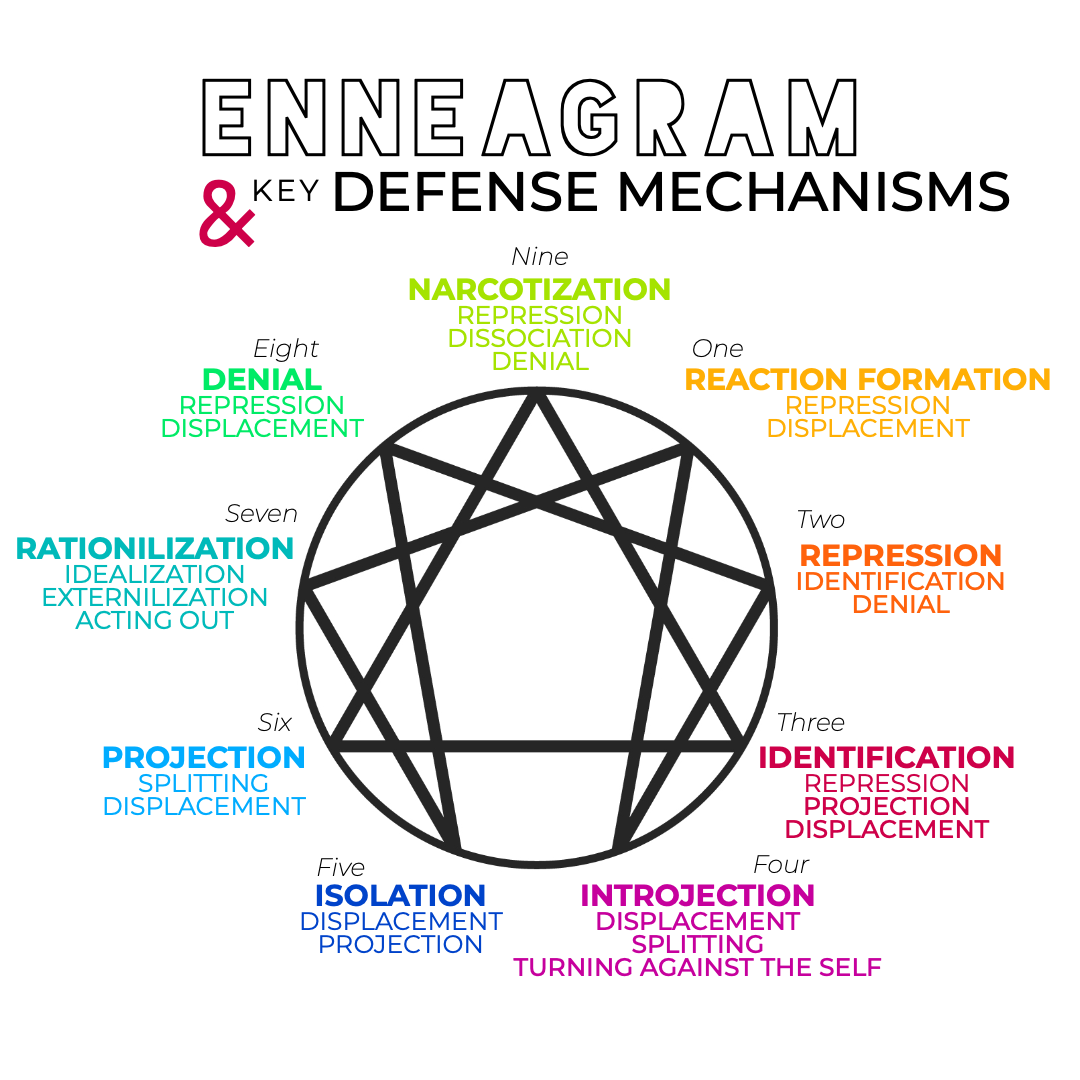|
Everybody knows that the higher income you get, the happier and more satisfied you feel but maybe not everyone knows that this stops happening after reaching a particular income. That is why I decided to write about this, might be useful to know that it's not true that only endless money makes people feel good, and that there are more nuances to that. The initial study on this topic was conducted by Daniel Kahneman and Angus Deaton in 2010, both authors are Nobel prize winners, and you can find this study here. This study shows that there is a particular sum after which people don't get an emotional boost, in other words - after a particular sum emotions start to flatten. Researchers found that after $75,000 on average in the US (– roughly £50,000 then, in 2010) people don't feel more satisfaction/less negative emotions There is an assumption that emotions settle because after reaching a certain level of comfort, any excess no longer gives the same satisfaction, and the overall responsibility for managing money remains the same or even increases. This sum limit is different for each country and city, in more advanced countries and cities it's higher, and in less advanced lower. And yes, apparently a majority of people name similar sums in the same country aaaand the same city. Here are some examples of some countries statistically: I took this source because of the more realistic sums portrayed in it. There are other figurative, visual articles as well, for example - the Daily Mail one. Another important factor to name about finances and satisfaction is from Ramit Sethi - an American writer and self-proclaimed personal finance adviser. He is the author of several books, shows (on Netflix too), and so on. The main key in his teachings is not to be fearful of the financial systems that we have but rather to know them and use them for our benefit and our older days. And more than only that... He has an incredibly useful insight that every person is different and everyone needs another kind of "rich life" style. It's a simple idea: - John wants to travel and can't see the benefits of owning property, so his rich life is spending everything he can on journeys and cutting off everything possible on the property. He will maybe visit even most rich countries but he will never buy a flat or even a room. - Magda wants to create charities and feel rich by giving back to the community and she doesn't see value in clothing, fashion, and similar things. So she will create the most demanding charity project from time to time but might wear the same dress to represent her projects for 3 years in a row. It's because she sees her as rich in this and no other way EVER. Well, you got the idea, I think. It is about knowing yourself and letting yourself have anything you want the most and not being bothered by any norms to care about something you just don't value and see more as an obstacle. So, the main points I wanted to convey are: 1) Money gives satisfaction only up to a certain level of income. 2) It is useful to know your "Rich Life" style and stick to it.
0 Comments
This time I write about defense mechanisms they are plenty and could be called quite milder names for example: artistic and creative problem-solving. Usually, it's about people (all people), who just happen to not want to appear in the same situations that have caused them lots of distress and emotional discomfort. People say it gave me "bad feelings", "I felt bad" because of it so on, not that it had to be bad in general but...that's a different topic. So defense mechanisms are ways to somehow avoid and go around these problematic situations so as not to appear in a similar mental/emotional state again. People often have multiple defense mechanisms and they use them in some combinations. One example of a classification of such mechanisms can be this witchy-looking enneagram (not a pentagram :D You're safe, promise) So let's extrapolate a little about each and every one of these: 1. REACTION FORMATION – feeling one thing and expressing the opposite. 2. REPRESSION - suppressing “unacceptable” feelings and converting them into a more acceptable form of emotional energy 3. IDENTIFICATION - taking on a role so completely that we lose contact with who we are inside. 4. INTROJECTION - unconsciously incorporating the characteristics of a person or object into one’s own psyche. 5. ISOLATION - can be physical withdrawal from others, but also means staying in the head and withdrawing from one’s emotions. 6. PROJECTION - attributing inner concerns and fears to others and external situations. 7. RATIONALIZATION - staying in the head, explaining away or justifying feelings and behaviours to avoid pain or accepting responsibility. 8. DENIAL - the forceful re-directing of attention and feeling based on willfulness and control. 9. NARCOTIZATION - using food, drink, entertainment or repetitive patterns of thinking and doing to “put oneself to sleep”. P.S.: This exact classification is based on Nine Enneagram Personality Types and each type tends to use one most default, primary defence mechanism (source - here). Let's leave this personality type classification for future blog entries. More about nine enneagram personality types - here with a free test, if anyone fancy. This theory was developed out of Big Five personality traits (more in this blog entry) And a few words about classical, academic input of defence mechanisms: Several people developed different theories and classifications, the first of them was Anna Freud, daughter of Sigmund Freud, they both studied these mechanisms. Other people to mention: Otto F. Kernberg, George Eman Vaillant, and Robert Plutchik. Defence mechanisms were also grouped into some categories by several authors, I personally like George Eman Vaillant's four-level classification:
Let's get all artistic, shall we, and in a mature way preferably :) 🎨
|
This is my blog about self-knowledge, self-work, emotional healing, growth, psychology, philosophy in general and other related themes. Archives
April 2024
Categories
All
|





